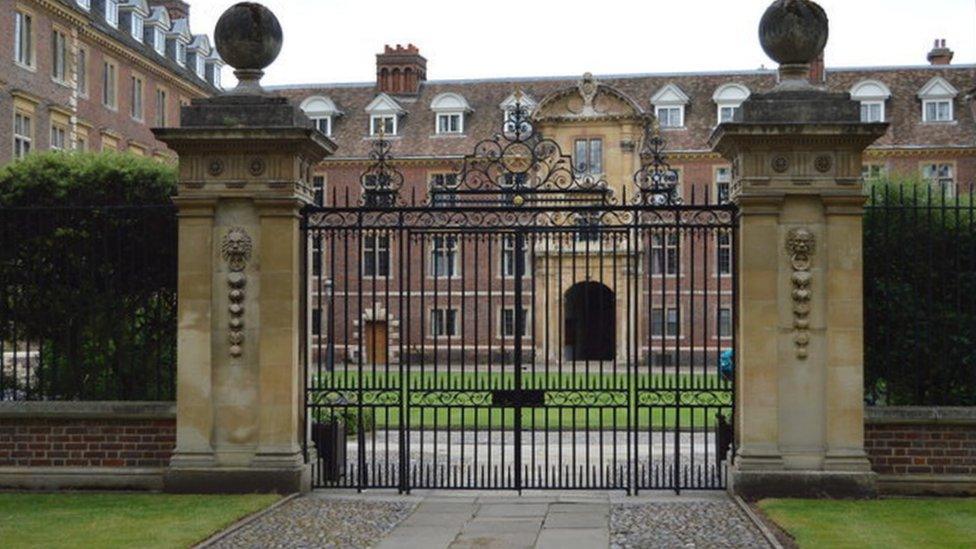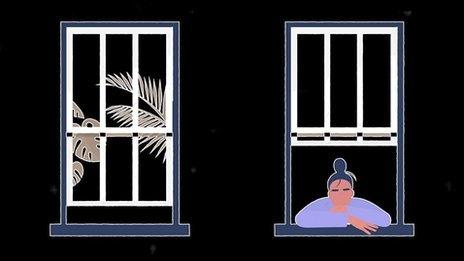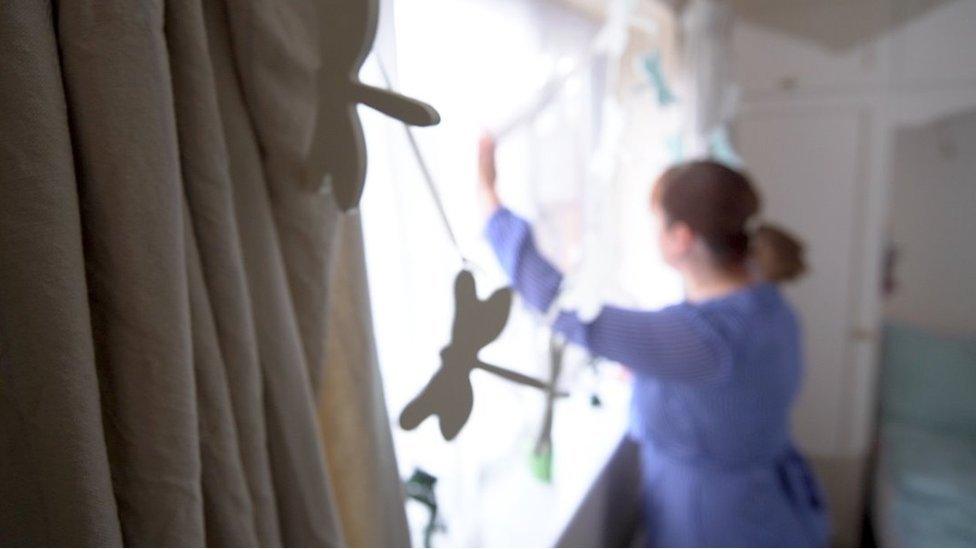Coronavirus: Cambridge college housed women escaping domestic abuse
- Published

St Catharine's College worked with Cambridge Women's Aid to house women escaping domestic abuse
A university college used empty rooms to give refuge to women escaping domestic abuse amid the coronavirus pandemic.
Cambridge Women's Aid said St Catharine's College at Cambridge University had provided a "true sanctuary to women and their children".
In all, 23 women and children stayed in accommodation there.
Sir Mark Welland, master of St Catharine's College, said he was "immensely proud".
In March, students at Cambridge University were advised to return home if they were able to as the Covid-19 crisis worsened.
Temporarily vacant rooms in properties without students were offered free of charge to those fleeing abuse.
Working alongside Cambridge Women's Aid, St Catharine's housed the women and children for a combined 1,456 nights between 27 April and 3 September.
A team of porters were on hand around the clock and there was CCTV in operation.
'Offer safety'
Cambridge Women's Aid chief executive Angie Stewart said: "Not only did the pop-up accommodation at St Catharine's provide a true sanctuary to women and their children at a dreadful time in their lives, it also meant we actually provided an enhanced service during lockdown instead of a reduced service as was common for many UK organisations."
Sir Mark said he was "immensely proud the St Catharine's community could join together with Cambridge Women's Aid to devise an imaginative way to offer support and safety to these women and children when they needed it most".
Between university terms, rooms at St Catharine's are usually used by school students for open days, taster days and access to higher education events.
These were all moved online or cancelled in line with public health advice.
The college and Cambridge Women's Aid agreed the initiative would end before students returned for the new academic year.

SOCIAL DISTANCING: What are the rules now?
SUPPORT BUBBLES: What are they and who can be in yours?
LOOK-UP TOOL: How many cases in your area?

Find BBC News: East of England on Facebook, external, Instagram, external and Twitter, external. If you have a story suggestion email eastofenglandnews@bbc.co.uk, external
- Published30 July 2020

- Published23 July 2020
